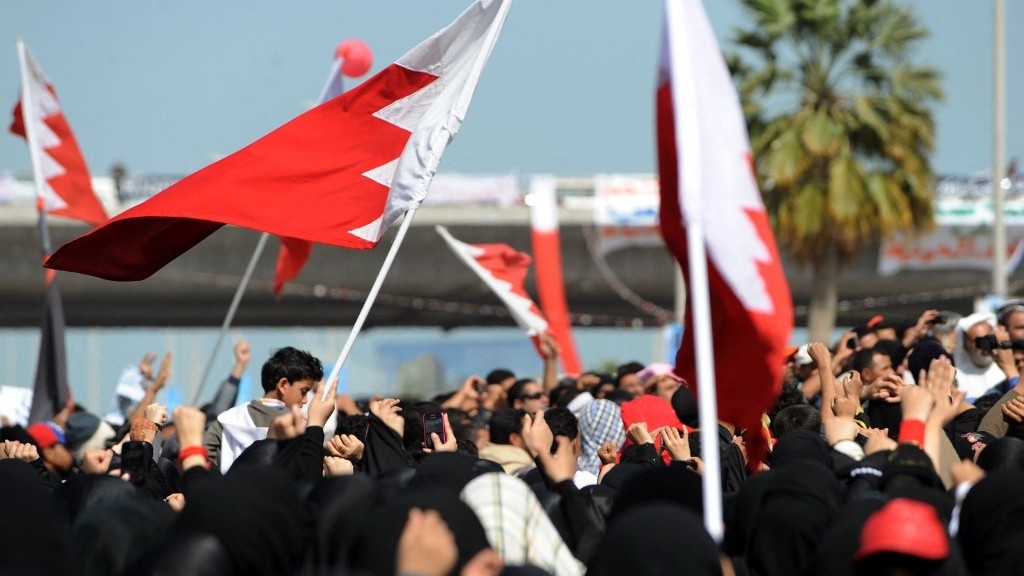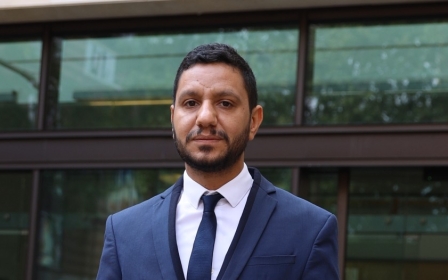Bahrain appeals ruling in spyware case involving UK-based dissidents

Bahrain has appealed a High Court ruling in a case brought by two UK-Bahraini dissidents who allege that the kingdom used spyware on them, arguing it should have state immunity.
Saeed Shehabi, a leading Bahraini opposition figure, and Moosa Mohammed, a pro-democracy activist and photojournalist, allege that their computers were infected with surveillance software called FinSpy in September 2011.
The software can record every keystroke, voice call, email and browsing history, and is able to record live audio from a device's microphone and camera.
The men believe the infections, which occurred months after anti-government protests began in the kingdom when they were in contact with other activists, journalists and political prisoners, were "carried out, directed, authorised or caused" by the government or its agents.
Last February, the High Court ruled that it had jurisdiction to hear the claim.
New MEE newsletter: Jerusalem Dispatch
Sign up to get the latest insights and analysis on Israel-Palestine, alongside Turkey Unpacked and other MEE newsletters
The ruling came months after the first-ever ruling in a UK court involving spyware and a foreign country in which the High Court found that Ghanem al-Masarir, a Saudi dissident who alleges that Saudi Arabia installed spyware on his phones, could proceed with his case.
States are normally shielded from most litigation in the UK under the State Immunity Act of 1978, enacted before spyware existed.
However, lawyers representing Shehabi and Mohammed contended that their case was an exception, arguing that the alleged acts that injured their clients happened in the UK.
Acts and injuries
This week, the case has been brought before the Court of Appeal where lawyers representing the kingdom have argued once again that state immunity should apply.
Professor Dan Sarooshi, representing Bahrain, told the court there should be a distinction between where an act is committed or commissioned and the effect of that act.
Sarooshi gave the example of an offensive and threatening phone call made by an Australian government minister to an individual in the UK.
"The Australian minister dialled the number and when it was picked up, he spoke into the phone in Australia, his voice was transmitted via cables and that's the cause of the injury," he told the court.
"The transmission of the voice by telephone cables doesn't somehow shift the place from where the minister was speaking."
He added: "We should not conflate the act and the injury, the effect of the act."
Ida Aduwa, a solicitor with the law firm, Leigh Day, which represents Shehabi and Mohammed, said she hoped the appeals court would uphold the High Court's judgement.
"In the United Kingdom, there have been many cases where politicians, lawyers, journalists, human rights activists and political dissidents have been targeted by foreign states as a result of their work," she said.
"Individuals should be empowered to take legal action against the perpetrator states and foreign states should not be permitted to hide behind state immunity when confronted by legal action in the Courts of England and Wales in such cases."
Middle East Eye has asked the Bahraini embassy in London for comment.
The appeal hearing concluded on Tuesday, with a ruling expected after 1 October.
Middle East Eye delivers independent and unrivalled coverage and analysis of the Middle East, North Africa and beyond. To learn more about republishing this content and the associated fees, please fill out this form. More about MEE can be found here.





